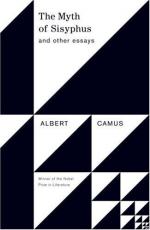|
This section contains 3,085 words (approx. 11 pages at 300 words per page) |

|
In The Myth of Sisyphus,… Camus provided us with a precise commentary upon [The Stranger]. His hero was neither good nor bad, neither moral nor immoral. These categories do not apply to him. He belongs to a very particular species for which the author reserves the word "absurd." But in Camus's work this word takes on two very different meanings. The absurd is both a state of fact and the lucid awareness which certain people acquire of this state of fact. The "absurd" man is the man who does not hesitate to draw the inevitable conclusions from a fundamental absurdity. (pp. 108-09)
Primary absurdity manifests a cleavage, the cleavage between man's aspirations to unity and the insurmountable dualism of mind and nature, between man's drive toward the eternal and the finite character of his existence, between the "concern" which constitutes his very essence and the vanity of his...
|
This section contains 3,085 words (approx. 11 pages at 300 words per page) |

|


